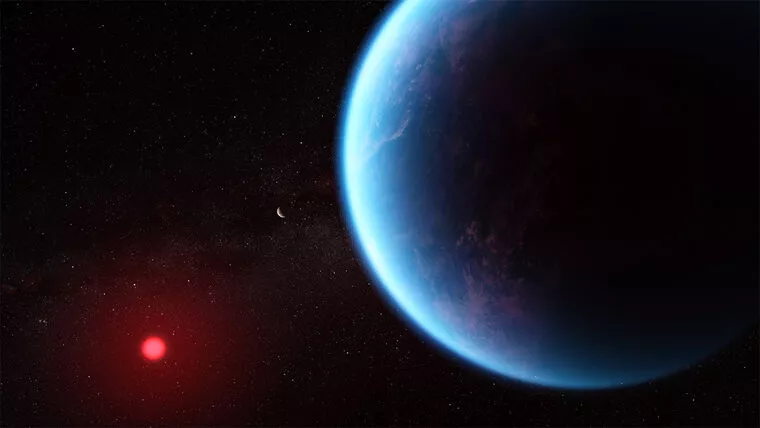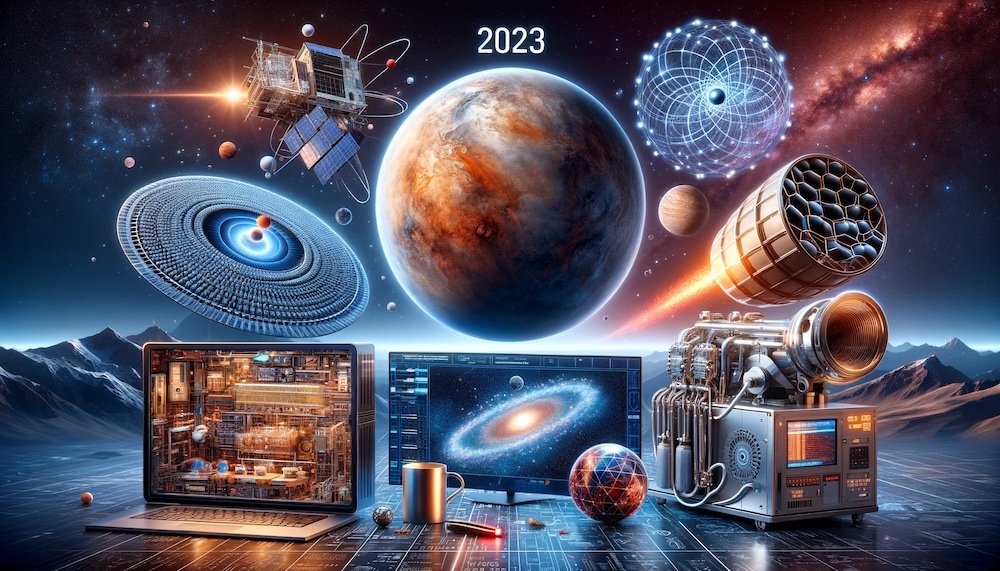At The Debrief, we cover a lot of science and technology news that feels like it’s being ripped from the script of a science fiction movie. So, here is a quick top 5 list of some of our favorite stories, scientific movements, and technological developments from 2023.
Advancements in Artificial Intelligence
The year saw explosive growth in generative AI (gen AI) tools. 2023 was very much the year of AI. Entire companies and jobs have shifted to an AI-based model. AI high performers, defined as organizations attributing at least 20% of their EBIT to AI adoption, were at the forefront of adopting gen AI tools. The business disruption from gen AI was significant, leading to workforce changes and large reskilling efforts. With their nearly human-like creativity or their ability to decode ancient long-lost text, AI has altered how we live and work. And while the dystopian hell world where machines take over and murder all of us in our sleep is still a ways away, there are definitely security risks with this new technology whether it is from errors in the system and cybersecurity. Suffice it to say, we have crossed a threshold and we will just have to see how far this rabbit hole goes (A Matrix pun…AI…get it?).
Exoplanets, Exoplanets Everywhere…
NASA’s James Webb Space Telescope confirmed its first exoplanet, LHS 475 b, an Earth-sized planet in January of this year, and the hunt for planets in the cosmos has not slowed down. This discovery opens the door to studying rocky planet atmospheres and brings us closer to understanding Earth-like worlds outside our solar system. A few months later, the James Webb spotted another planet called GJ 1214 b and then another, TOI 1680 b, and then K2 18 b …well, the list keeps going. Hunting new distant planets aside, some spectacular discoveries around the Trappist-1 solar system have also been made, including some curious “ghost signals” that made headlines. We even discovered “exomoons” that didn’t turn out to be moons at all! If space is the final frontier, we are only getting closer to it, and learning what’s out there.


(Image Source: NASA, ESA, CSA, Joseph Olmsted (STScI))
A Quantum Leap in Computing
IBM announced a breakthrough with its quantum computer, which for the first time produced accurate results at a scale of 100+ qubits, outperforming leading classical simulations. But this wasn’t all. Google made some claims that it had achieved “quantum supremacy,” though critics point out it still has a way to go. A lab at the University of Bristol says that it created a mini-wormhole using quantum computers, and even DARPA says it is developing some novel synthetic materials that will make quantum computers not only faster, but cooler…so you don’t need giant freezers to keep your quantum computer from making the leap into some other dimension (that’s a joke, they just break).
Fusion Energy is So Hot Right Now
The US Department of Energy’s National Ignition Facility (NIF) achieved a significant milestone by compressing atoms to initiate nuclear fusion, generating more energy than consumed at the very end of 2022. This was a major step towards developing nuclear fusion as a clean energy source. The NIF, costing $3.5 billion and located at Lawrence Livermore National Laboratory, conducted successful ignition shots, producing record amounts of fusion energy. Things did not slow down in 2023. The Department of Energy began testing new materials for fusion reactors, and a global network of nations completed the construction of the largest fusion reactor in Japan. And while the public is still unsure about the technology, the safe and very environmentally friendly fusion energy may just be our next handhold up the Kardashev Scale. Level 1…here we come!
The Existential Climate Change Threat
Global conflicts, war, and disease are tragic concepts that humans have to face on a daily basis, and when it comes to our future on this planet, climate change is our greatest challenge. Now, while humans often act like tribal monkeys fighting over power or land or wealth, there are a few shining beacons of hope. Whether it is a plan to de-extinct some species to restore ancient ecosystems, or to develop novel technology like artificial photosynthesis or rain panels, our drive to survive has made 2023 a benchmark year.
The year 2023 marked a watershed moment in science and technology, characterized by groundbreaking achievements across multiple domains. From the rapid evolution and adoption of generative AI to the pivotal discoveries of exoplanets, each advancement has contributed to a profound shift in our understanding and capabilities. Quantum computing breakthroughs brought us closer to solving complex problems that were once beyond our grasp, while strides in fusion energy research signaled a promising future for sustainable power. Ongoing research into climate change continued to shed light on one of the most pressing challenges of our time. Collectively, these developments not only epitomize the ingenuity and perseverance of the scientific community but also underscore the potential of technology to reshape our world, offering hope and new possibilities for the years ahead.
As we enter into 2024, The Debrief will be here to cover all the groundbreaking science and technology news from the frontiers of knowledge.
MJ Banias is a journalist who covers security and technology. He is the host of The Debrief Weekly Report. You can email MJ at mj@thedebrief.org or follow him on Twitter @mjbanias.

